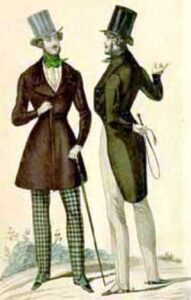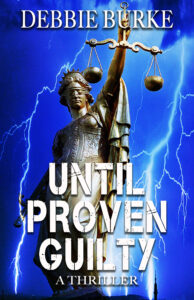
Photo credit Pisit Heng, Unsplash
By Debbie Burke
We wordsmiths know that language changes over time. Words often veer far away from their original definition and usage.
Take, for instance, the adjective ANXIOUS. Anxious is an old word, originally coined in about 1548 that (according to Google’s dictionary) means:
1. experiencing worry, unease, or nervousness, typically about an imminent event or something with an uncertain outcome.“she was extremely anxious about her exams”
2. wanting something very much, typically with a feeling of unease.”the company was anxious to avoid any trouble”
However, consider the following examples heard in current everyday speech:
“She’s anxious to reunite with her childhood sweetheart.”
“He’s anxious for his first book to be released.”
“She’s anxious to wear her new jeans.”
The implication is the subjects can’t wait for these occurrences to happen because they are generally considered happy, exciting events.
That made me wonder if EAGER is a more accurate word to describe the above feelings.
So I checked with Merriam-Webster. That source adds a third definition that reflects the increasingly common usage in today’s speech:
- ardently or earnestly wishing.
Merriam-Webster goes into a deeper discussion:
Choose the Right Synonym for anxious
EAGER, AVID, KEEN, ANXIOUS, ATHIRST mean moved by a strong and urgent desire or interest. EAGER implies ardor and enthusiasm and sometimes impatience at delay or restraint. eager to get started AVID adds to EAGER the implication of insatiability or greed. avid for new thrills KEEN suggests intensity of interest and quick responsiveness in action. keen on the latest fashions ANXIOUS emphasizes fear of frustration or failure or disappointment. anxious not to make a social blunder ATHIRST stresses yearning but not necessarily readiness for action. athirst for adventure
Can anxious Be Used as a Synonym for eager?
The fact that individual words can have multiple senses that are closely related in meaning is something which many people find objectionable about the English language. Anxious is an example of such a word, as people will use it to mean “worried,” “eager (but with an undertone of worry),” and simply “eager.”
Here are a few more examples of words whose meaning has changed over time:
AWESOME – originally, it meant inspiring awe. Now the word is overused as a superlative compliment for any and everything great: “That sushi is just awesome, dude.”
Which leads to…

Public Domain
DUDE – Merriam-Webster’s definition:
1 : a man extremely fastidious in dress and manner : dandy. 2 : a city dweller unfamiliar with life on the range (see range entry 1 sense 3b) especially : an Easterner in the West.
Yet in the past several decades, how often have you heard dude used in that context? Probably not too frequently since surfer and “bro” culture co-opted the term. Now it’s mostly a casual greeting: “Whassup, dude?” Or dude is a noun that refers to a guy.
Which leads to…
GUY – This word has an interesting, violent history. Guy originally referred to Guy Fawkes, a British terrorist. In 1605, Guy and several co-conspirators tried to blow up Parliament with gunpowder. He was sentenced to be hanged and drawn and quartered but, on the way to the noose, he either fell or jumped, breaking his neck. November 5 is still celebrated as a holiday with fireworks and bonfires. Guy is an eponym, meaning a word that is believed to be named for a person or event.
Originally it referred to males, e.g. “He’s a nice guy.”
Nowadays, it’s used collectively—“You guys are an awesome audience!”—inclusive of men and women, adults and kids.
Which leads to…

Photo credit: Pinoydiscus CC BY-SA 3.0
KID – My third-grade teacher Miss Parker didn’t approve when we referred to ourselves as kids. She always corrected us, saying, “A kid is a baby goat.” Ultimately, she lost that battle because Merriam-Webster now lists the first definition as: “a young person, especially a child;” followed by the second definition of “a young goat.”
Which leads to…

Muhammad Ali CC BY-SA 3.0
OLD GOAT – an insulting way to refer to an old man, goat has evolved into an acronym especially popular in sports: G.O.A.T. = Greatest Of All Time.
TKZ word geeks, let’s open the discussion.
As a writer, do you feel anxious or eager when words evolve and change meaning over time?
Please share examples you’ve noticed lately. Do they annoy you? Or do you appreciate the fresh variation?
~~~
When the law prevents justice…When DNA isn’t proof…When a lie is the truth.

Please check out Debbie Burke’s new release, Until Proven Guilty. Available on Kindle, Nook, Apple Books, and online booksellers at this link.

Yep, drives me crazy when I hear a weather guy say “It likely will rain” because in my mind (and in dictionaries until relatively recently) “likely” was an adverb, synonymous with “Probable,” not with “probably.”
Another one is “till” as a shortened form of “until.” It should be ” ’til.” “Till” is something you do to a field or a tray in which you keep paper money and coinage.
And I agree with your teacher. Sometimes my characters call their offspring “kids” but I’ve always referred to mine as “children.” It seems more respectful to me..
I’m convinced that sometimes changes occur in the language because it’s easier to tell everyone they’re right than it is to correct and teach. Concise communication has taken a hit from which the language will never recover, but then nobody, even many writers, cares so long as “the reader will understand what I mean.”
Oh, in that vein, body parts performing human functions, like eyes shooting across a room (without the character having been hit in the back of the head with a shovel), noses smelling something spicy, legs racing down the street, hips leaning against a rail, etc. etc. ad nauseam. (“Oh, but the reader will understand what I mean.”)
Sometimes the film Idiocracy seems less a far-fetched tale and more a cautionary one. (grin)
According to Merriam-Webster:
“Many assume that till is an abbreviated form of until. Actually, it is a distinctive word that existed in English at least a century before until, both as a preposition meaning “to” and a conjunction meaning “until.” It has seen continuous use in English since the 12th century and is a perfectly legitimate synonym of until.”
I had to laugh. So till “is a perfectly legitimate synonym of until,” but “’til” is “archaic” and shouldn’t be used. Yet they both sound exactly the same. Brilliant. I’ll have to check in my OED and see what it says. As if it will make any difference.
And that’s kind of my point. As with pretty much any point of contention (and as folks these days are so pleased to say), it all boils down to personal preference. So everyone is automatically right, nobody needs to feel “corrected,” and we can all take our participation trophies and go home. (grin)
Thanks, Eric, for saving me the time to verify that “till” is the original form, which was my understanding.
“it’s easier to tell everyone they’re right than it is to correct and teach.”
Ain’t that the truth, Harvey!
Detached body parts are my weakness in early drafts. I have to keep my eyes peeled to catch them on rewrites 😉
Thank you, Debbie. I feel both anxious and eager. I enjoy wordplay.
The meaning of words can also change across borders. There are words used in British slang that have an entirely different meaning than in the United States. I’m thinking of one right now that I’ll keep to myself.
Have a great week, Debbie!
Hahaha, Joe! Bet I can read your mind.
As George Bernard Shaw said: “England and America are two countries separated by the same language.”
Joe, are you by chance thinking of a style of carpet that was popular in the ’70s–particularly on the roofs of vans?
Austin Powers.
There were also many reports of Brits laughing out loud when the movie Free Willy came out.
When I stayed at the cattle ranch, they had a cat (among many other pets) named Willy, and he had one eye. And there was a Brit as another guest. Enough said.
I’m thinking the word “knock” is involved.
I think probably a lot of us are using the word ‘anxious’ these days & definitely not intended to mix with eager (I almost spelled that as eagar, as in Eagar, Arizona) 😎 Since I’m mostly writing in the 19th century, I try to let research inform word choice (because you know a reader will certainly advise you if you’ve used a term not in use at the time).
The word dude, itself doesn’t bother me, but I confess those soundbytes of the ditzy surfer boy with the annoying voice SAYING the word grinds on my nerves.
Not directly related to word choice but still related to communication–one problem I see in modern day that was also a problem in the 19th century–people write newsbits and articles with the assumption that you have some idea of the larger issue to which they are referring. Sometimes you’ll see a news item written in a 19th century newspaper which was written with boldness and confidence–but under the mistaken assumption future readers had enough context to understand the purpose of the news item. A couple centuries from now, I wonder how garbled our news and articles are going to seem to future readers due to word choice and assumption? Hmm….
BK, great points about time and history.
“A couple centuries from now, I wonder how garbled our news and articles are going to seem to future readers due to word choice and assumption?”
These days, news sounds garbled almost immediately! In a couple of centuries, today’s usage will more incomprehensible than Beowulf.
Just yesterday, someone on twitter was wondering whether a literary allusion worked if based on the “Addicted to Love” music video from the 80s. Our ephemera have become more ephemeral.
Nothing new about that. There are old haiku that contain allusions to older works that can no longer be identified.
“‘Neath the cloudy cliffs came then from the moor dishere dude Grendel gangen… “
I do recall being told a kid is a baby goat. I also remember when ‘cop’ was a derogatory term and we were told to refer to policemen. (Yes, I’m old enough so we attached gender to terminology.) If the police officer was female, she was a policewoman. (I won’t go into the slang my father used.) As my high school teacher used to say, “that’s just good grammar.”
Things are ever changing. My pet peeve is ‘alright’ instead of all right, which is what I was taught. I will probably go to my grave clenching my teeth whenever I see alright.
When I worked at a major theme park in Florida, a guest filed a complaint at the performer’s use of “guys” as a collective term for the audience. She was not a “guy” and resented being called one.
Terry, I too remember when calling a cop a “cop” might lead to a whack in the shins with a nightstick.
Was the guest complaint from a lady about five feet tall with dark curls in a hairnet? If so, that was probably my third grade teacher.
Very interesting post, Debbie. This is a great reminder to check a good (and recent) dictionary when we have any questions about the current use and meaning of a word.
I feel both anxious and eager about the evolution of meaning of words. Since I write teen fantasy, I use beta readers to keep me up to date. I’ve received more than a few comments like, “Dude, no teen would be caught dead…(doing or saying something). And I enjoy reading the different use of words from Harry Potter English, to Reavis Wortham Texas English.
The words with changed meaning that annoy me are the ones we are instructed to NOT use, and particularly those we are told to use in their place. As far as I know the first amendment still applies as to whether or not I comply.
Have a wonderful week, Dude (I mean Debbie)!
Back atcha, guy! I mean, buddy. Or pal. Or homie. Or…
…mate.
Re “anxious”: Then there’s the “existential” sense corresponding to the German “Angst”:
In existentialist philosophy, the term angst carries a specific conceptual meaning. The use of the term was first attributed to Danish philosopher Søren Kierkegaard (1813–1855). In The Concept of Anxiety (also known as The Concept of Dread, depending on the translation), Kierkegaard used the word Angest (in common Danish, angst, meaning “dread” or “anxiety”) to describe a profound and deep-seated condition. Where non-human animals are guided solely by instinct, said Kierkegaard, human beings enjoy a freedom of choice that we find both appealing and terrifying.[5][6] It is the anxiety of understanding of being free when considering undefined possibilities of one’s life and the immense responsibility of having the power of choice over them.[6][7] Kierkegaard’s concept of angst reappeared in the works of existentialist philosophers who followed, such as Friedrich Nietzsche, Jean-Paul Sartre, and Martin Heidegger, each of whom developed the idea further in individual ways. While Kierkegaard’s angst referred mainly to ambiguous feelings about moral freedom within a religious personal belief system, later existentialists discussed conflicts of personal principles, cultural norms, and existential despair. [Wikipedia]
Eric, thanks for the background on existential. IMHO, that word is overused to the point of becoming an annoying cliche.
Important situation for “show, don’t tell.”
I remember chortling the first time my daughter referred to something really good as “sick.”
One phrase that has morphed and drives me crazy is, “That begs the question.” It does not mean “invites the question.” It’s a term for a fallacy of logic, when one assumes a premise or conclusion without proving it. But some goofballs in the media thought it made them sound smart and it has since spread like a virus, for which there appears to be no vaccine or treatment.
Oh yeah, Jim, I couldn’t agree more about begging the question.
Having taught logic and philosophy for many years, I squirm whenever I see ‘beg the question’ misused/abused.
But even Dreyer’s English has thrown in the towel and acknowledged a TKO on this one.
Doesn’t give one the right to the abuse, but it does perhaps counsel tolerance.
I tend to feel more anxious than eager when language evolves, Debbie, though I readily acknowledge that’s what language does.
One evolution I resisted for years was the use of impact as a verb, in place of affect, such as “how will these sales figures impact our bottom line.” Then I learn from Merriam-Websters that it has been used as a verb for four centuries:
https://www.merriam-webster.com/words-at-play/yes-impact-is-a-verb
However, Merriam-Websters agrees that the proliferation of figurative uses for it spread a great deal in the late 20th century (such as my disliked substitution for “affect” rather than physically impacting).
As for broadly using awesome, guilty as charged 🙂
Thanks for this thought-proving post. Have a wonderful Tuesday!
I would classify that misuse of “impact” as disingenuous wordsmithing. My pet peeve is when the word “demagogue” is used as a verb.
Dale, being a librarian, you’re probably more aware of changing language than most people.
I think the anxiety arises b/c a word that means one thing to me but something completely different to you (like Jim’s example of “sick”) leads to miscommunication, misunderstanding, and anger.
I was called out on this very thing a few months back through a critique. Had to fix those problems by being specific to what the my character was feeling.
Ben, the more specifics we use in writing, the clearer the picture in the reader’s brain. Years ago, a mentor told me, “Don’t say car, say Cadillac.”
The specificity of feelings could be the subject for a whole ‘nother post.
Good morning, Debbie.
I love our language and the evolution of words. One of my favorites is the word “clue.” (No surprise there.) “Clue” originally meant a ball of yarn. There was that famous mythical story of the beautiful Ariadne who gave her boyfriend Theseus a “clue” so that he could enter the labyrinth and slay the Minotaur. The idea was to unroll the ball of yarn as he made his way through the very complicated maze. Then he could just follow it to get back out again. Eventually the word came to mean a way to find your way through a mystery.
As a side note, I assume Agatha Christie named her fictional novelist Ariadne Oliver because of the myth.
Kay, thanks for reviewing the origin of “clue.” I bet you’re correct that Dame Agatha chose Ariadne’s name with malice aforethought.
Since we’re doing this . . . My bugaboo is any modification to the word, “unique.” Sort of unique, very unique. Unique is an absolute. One of a kind.
Irregardless, people don’t understand. (See what I did there?)
I’m betting a huge majority of people saw what you did there, John.
John, your comment is definitely the most unique one today. 😉
Lots of comments this morning, Debbie. Looks like you hit a g-spot. I’d include cautious between anxious and eager which makes me bring up profanity in today’s writing. People now throw F and C-bombs around like the football scene in Top Gun Maverick. I wonder if what was once mouth-washed-out-with-soap stuff is the new norm. Me – I’m cautious about using profanity but there is a time that no other word will do.
Garry, totally agree that profanity bombs are way overdone. But, as you say, sometimes no other word will do. You should have heard me the last time I stubbed my toe.
Samuel Johnson in his first edition of A DICTIONARY OF THE ENGLISH LANGUAGE (1755) wrote that his dictionary would codify and create a permanent version of the English language. In his final edition (1785), he had realized his folly and wrote that making words permanent would never happen because words and language change.
Esperanto is a created language that was meant to be a world-shared language that was both simple and permanent. Some people believed in it so much they only spoke Esperanto and raised their kids to speak it as their native language. Within a few years of the kids speaking it, it had developed new words and its structure began to turn illogical and complex. So, yeah, words and language change.
On the subject of Johnson, do a search for his quotes. He was that period’s sarcastic and witty Oscar Wilde.
Marilynn, just googled Johnson quotes and found this one that gives hope to writers: “If your determination is fixed, I do not counsel you to despair. Few things are impossible to diligence and skill. Great works are performed not by strength but by perseverance.”
Love wordplay, Debbie! The younger generation uses “fire” to mean “amazing.” That movie was so fire. I’ve noticed they also abbreviate words at will. “Whatevs” meaning “whatever.” I don’t have a problem with “fire,” even though it sounds off to me. After all, we did the same with “mad,” as in: She has “mad” skills. Some abbreviations are obvious, like whatevs, but I never remember what the acronyms mean. *sigh*
I didn’t know about “fire.” Thanks for adding to my vocab, Sue!
It helps to take your audience into account: some audiences will prefer the more ‘modern’ version, as something they use every day, and would find a more classical take presumptuous.
My target audience, however, is the readers who know the difference between ‘all right ‘ and the abomination (my biases are showing, of course), and would put the book down the second time they ran into it, permanently, along with any thoughts of reading that author again.
In general, the first group are more forgiving (they don’t really care), so it’s safer to be precise and a little old-fashioned, because the latter group have been attacked so much lately that they are always a bit on edge, and quick to DNF. Of course they are the MUCH smaller group, but there are a lot of people who read English on the planet, so you can still write for those who DO care. Just be careful that your book description doesn’t attract the first group, because they will also usually find your fiction too long: it takes space to be more precise, and can result in lovely complex sentences. Their unhappiness can lead to bad reviews.
Thanks for good insights about identifying and writing for your target market, Alicia. If you use language that’s precise and clear, any reader can understand you, even if they think you’re old-fashioned.
Shifty meanings are the bee’s knees when used with intent, especially comic intent (“‘You can mess with people’s dirty minds through archaic saidbookisms!’ he ejaculated.”)
In general, though, I like to get all my connotational ducks in a row. I wouldn’t use “anxious” to mean “eagerness untinged with fear” because it says “fear” right on the label.
Robert, a few days ago, a fellow was telling me about re-reading Conan Doyle and mentioned how often he used ejaculated.
Great post, Debbie. The latest buzzword at my company is invite. “We invite you do to XYX” in the subject line, only to read in the next paragraph that “XYZ is required by the end of the week.” It’s driving me crazy!
(our annual employee satisfaction survey begins today, and my first comment is to invite them to look up the definition of invite…)
Hahaha, Rosie. Sound like those invitations are similar to 1960s-70s letters from the draft board that started off, “Greetings!” The young man was then *invited* to an all-expense paid tour of scenic southeast Asia.
Along similar lines of company double-speak, when a business says they’re changing policy “for your convenience,” I know I’m screwed.
I just get tired of people using “surreal” all the time.
Joyce, these days words can turn into cliches almost overnight. As a writer, I hate to see a word overused to the point where it totally loses meaning or impact.
I love the post and all the comments, Debbie! And I think we had the same third-grade treacher. lol
Thanks, Patricia. Miss Parker was a big influence, encouraging my writing at age 8. She must have done the same for you!
Good post. My partner for the past 19 years was born in D.C., raised in Mass, and schooled in Vermont. She’s lived here in Spain for 39 years, and speaks 5 languages. I’m a Brit. There’s hardly a day when there is no confusion about a word or two.
In the kitchen, for example, I once asked, “Please pass me the fish-slice.” Total incomprehension. “What?”
“The fish-slice, please.”
“Ah…a spatula.”
And, just yesterday, she pointed to a phrase in a British-English textbook: ‘How often do you have a weekend break?’ and asked, “What does this mean?”
Another example, going back a few years, and which got me into a lot of hot water, and a day in the dog-house, was my use of the word ‘mental’ meaning really very good; she interpreted it as an insult, when the intention was to express the precise opposite. It was only after she spoke with my then Brit teenage daughter a day or so later did she believe my interpretation of the word.
Greetings to you and your partner in Spain, Bill. Always glad to hear from readers across the pond.
Seeing the confusion than arises from *one* language, I can’t imagine keeping track of the nuances of five!
Thanks for stopping by and adding to our vocabulary variations.